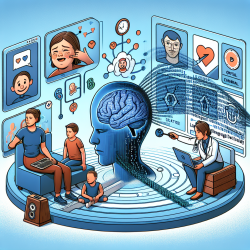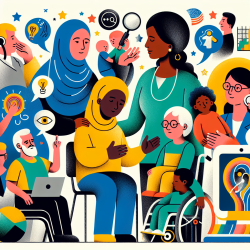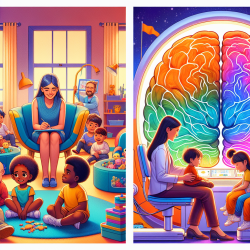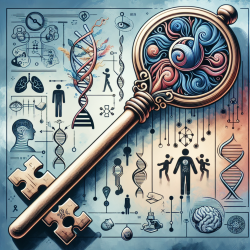Introduction
The intersection of neuroscience, psychology, and moral philosophy offers a rich tapestry for understanding human behavior and self-concept. The research article "Common Sense Beliefs about the Central Self, Moral Character, and the Brain" by Fernandez-Duque and Schwartz (2016) provides valuable insights into how people perceive their central self and its relation to brain function and moral character. For practitioners in the field of speech-language pathology, especially those involved in online therapy services like TinyEYE, these findings can inform and enhance therapeutic practices.
The Central Self and Its Implications
The study explored lay beliefs about the central self, which is perceived as the core of one's identity, and how it relates to brain dependence, moral character, and willful control. The findings suggest that people see the central self as more brain-based and stable over time compared to the peripheral self. This central self is also considered more indicative of moral character, yet less changeable through willful control.
Applying Research to Practice
For practitioners, understanding these perceptions can enhance the effectiveness of therapy sessions. Here are some ways to integrate these insights into practice:
- Focus on Core Traits: When working with children, emphasize the development of core traits that are stable and central to their self-concept. This can help in building a strong foundation for their identity and moral character.
- Brain-Based Approaches: Incorporate strategies that acknowledge the brain's role in shaping the central self. Use data-driven methods to tailor interventions that align with the child's unique neurological profile.
- Encourage Self-Reflection: Facilitate activities that promote self-awareness and reflection on core attributes. This can help children understand the stability and significance of their central self.
Encouraging Further Research
While the study provides a comprehensive overview of lay beliefs about the self, it also opens avenues for further research. Practitioners are encouraged to delve deeper into how these beliefs manifest in different cultural contexts and how they influence therapeutic outcomes. Understanding the dynamic interplay between brain, self, and morality can lead to more nuanced and effective therapy strategies.
Conclusion
Integrating the findings from "Common Sense Beliefs about the Central Self, Moral Character, and the Brain" into online therapy practices can enhance the development of children's self-concept and moral character. By focusing on the central self and its brain-based underpinnings, practitioners can create more impactful and personalized therapy experiences.
To read the original research paper, please follow this link: Common Sense Beliefs about the Central Self, Moral Character, and the Brain.










